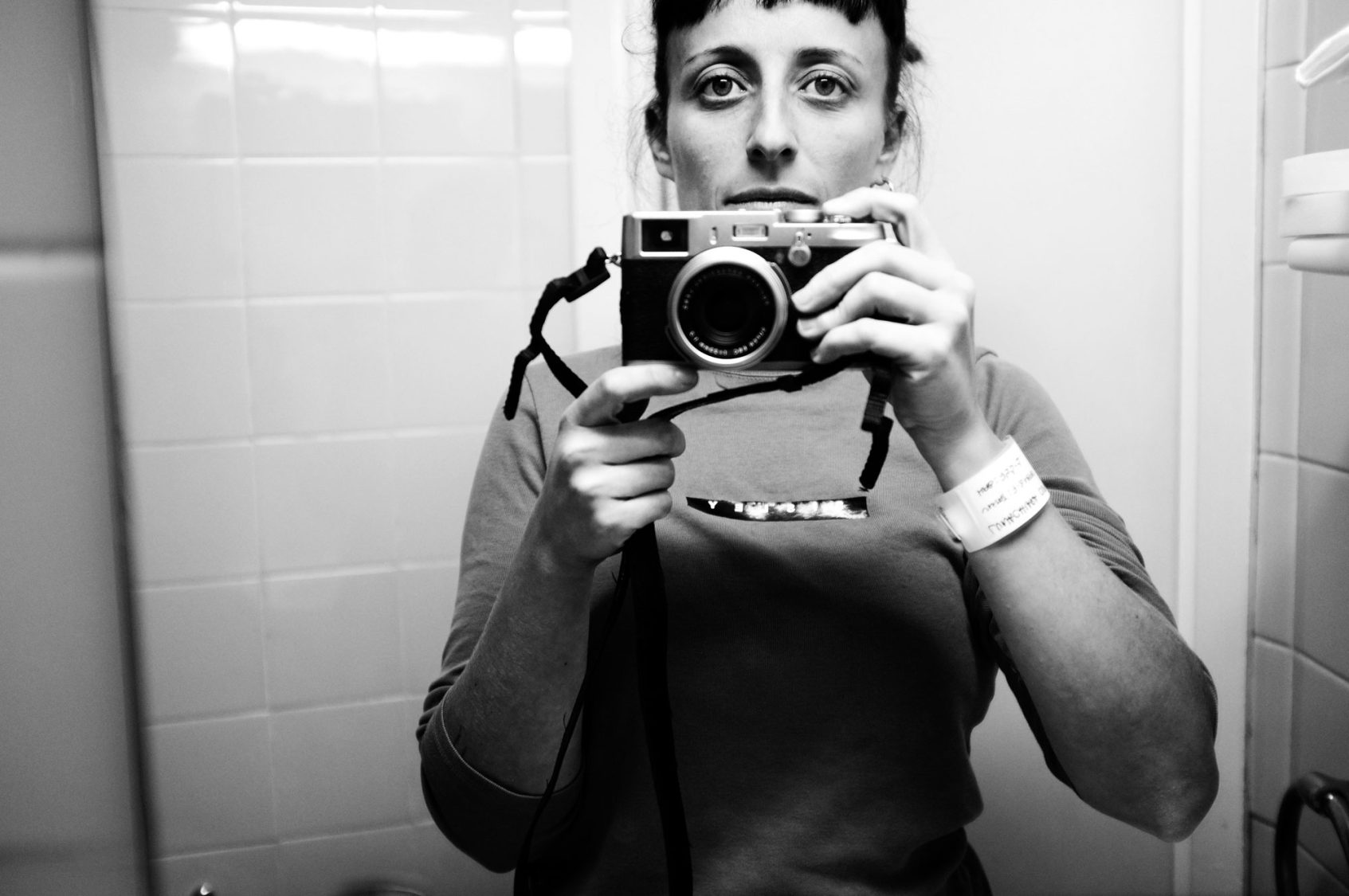1
I dream I am descending in an old oak-paneled elevator. Suddenly I am aware of someone behind me. Tensing, I turn. A wild elfin man in a tweed suit with unkempt orange hair and a face like Mr. Punch is leering at me. I am terrified, powerless to move or cry out. My heart stops. I panic. Suddenly I wake, very weak, covered in sweat, still unable to move.
Bright sunlight blurs on the edges of the window. Warm white sheets are absorbing me.
2
When Prince Siddhartha returned to his palace after seeing the sorrows of old age, for many weeks he could find no peace or pleasure. Eventually he returned to the pastimes of a prince and became again engulfed in studies, swordplay, and luxury. But his curiosity returned, and he decided once more to ride in his chariot through the city.
As Siddhartha rode past a crowd shouting and laughing, a man staggered from the bushes and fell on the road before his chariot. People looked at the man but quickly moved away. No one would help him. Siddhartha asked the charioteer: “Why is this man lying there shivering but covered with sweat, with a distended belly but withered arms, deathly pale, white spit dried around his lips and moaning in agony, crying for water? He gasps for breath. But those walking past avert their gaze and shun him. Charioteer, what is this man?”
The charioteer answered: “My lord, this man is sick. Disease is ravaging his body. He is weak; yet once he, too, was healthy and strong! People avoid him lest they catch the illness too.” The prince looked at the man with pity, and asked again: “Is this affliction peculiar to this man, or are all creatures threatened with sickness?”
The charioteer answered: “We, too, will all suffer from some such affliction. O Prince, sickness prowls constantly through the world. It feeds on everything alive and cannot be escaped.”
When he heard this painful truth, the prince began to tremble like a moonbeam reflected on the waves of the sea, and he uttered these words of bitterness and pity: “Men see suffering and sickness, yet they never lose their self-confidence! Oh, how great must be their ignorance! They are constantly threatened with disease, yet they can still laugh and be merry! Turn your horses around, my charioteer. Our pleasure trip is ended. Let us return to the palace. I have learned to fear sickness. My soul turns away from the world. Like a flower deprived of light, it is withering.”

3
From time to time and for no known reason, approximately 200 different kinds of cells, each with as many as 20 subgroups, intertwine in a complex dance. Coming together and dissipating at varying rates, replacing themselves—or not—they move through time and space, adopting momentary configurations in gestures of complexity, power, and grace. Just like the galaxies that take shape on a much vaster scale of space and time, the purpose or meaning of these temporary configurations is the subject of constant speculation, terror, belief, legend, dream, and myth.
Names have been given to each cell according to the functions that humans value. There are surely many other kinds of cells in these configurations, but their functions are neither valued nor known.
The cell types emerge, proliferate, decay at varying rates, are replaced—or not. They dissolve back into space and emerge in new forms. Such cells, 37.2 trillion, call out, draw together, bind, release, expand, contract in a pattern known as a person.
4
They assemble. They dance, reassemble, continue. Elements spin away; some exhaust themselves, wear out. Some are re- placed and continue. Trillions upon trillions of different cells, drifting in empty space, are coalescing as colonies, are dancing, dissolving, reforming, continuing, even as mysterious clouds of viral colonies, known or unknown to each other, are on the move. These have no memory of continuing, only the fact of continuing.
As tribes of humankind, for reasons they themselves do not know, multiply and take possession of the earth, the viral colonies stir. They are dislodged when the permafrost beneath a campfire thaws. They move when a bird eats a spider in the high forest. The bird is shot, cooked on the fire, eaten. Chukchi shamans in the deep north have seen these minute beings on the move. They pass through denser forms of space in soil, pond waters, flesh. They sense themselves only as a cloud taking shape within other forms. They change the lives of those they inhabit. They change the actions of cells dancing in the shape of skin, brain, blood, and inner organs. They change our experience of mind and world.
5
A friend woke up feeling strangely apprehensive, and within a very short period of time he found himself completely paralyzed. His nerves were on fire. Doctors had a name for what was happening but no way to resolve it. The pain, his terror and claustrophobia, cannot be imagined. He thought of his teacher constantly. He found that when he merged in the totality of his situation, the intensity eased. He felt the bound- aries of his body in which he was trapped open into an immense expanse. There he rested until a flickering thought reintroduced the specifics of imprisonment. It was a path of surrender, repeated, of necessity, endlessly. Over a few years, it led back to speech and mobility.
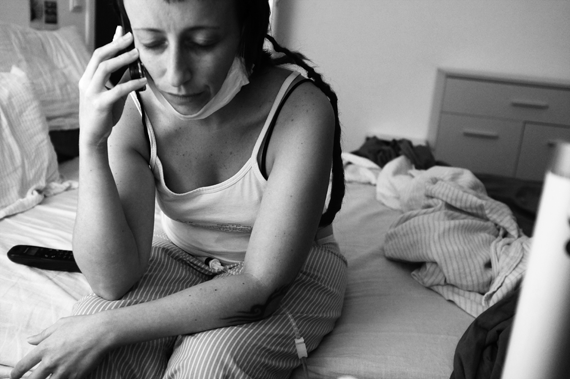
6
In the lives of human beings, patterns intersect with other kinds of patterns, and this dance changes both. The interaction causes elements in the pattern that is a woman or man or child or elder to sicken. They weaken as organs fail, and the larger pattern moves toward incoherence. Experienced as fever, as cold, as dementia, as paralysis, as impairments and pain of all kinds, it is sickness.
7
Now the body can no longer be taken for granted. Awareness encounters sharp obstacles moving in the body’s recently complaisant streams. Suddenly, actions, responses, and simple continuing do not take place with ease or certainty. Breathing, swallowing, ingestion, excretion, standing, sitting, walking, sleeping, waking do not happen without pain or difficulty. The medical procedures inflicted to make them possible are painful and humiliating. The body is no longer a location of strength and pleasure. Patterns of expectation are wrenched out of shape. It becomes a location of pain and faint disgust. The senses are corrupted. Smell and taste carry a slight aura of rot or chemical overlay.
The sick are living in their bodies like people trapped in a war-ravaged city. All of daily life is uncertain, difficult, filled with threats of death and dismemberment. That life continues is an act of inexplicable will or mindless desperation. They scurry through the dust-filled air, dodging among the fragments of life. Those with weapons fire into the smoke and shadows. All others flee, struggling through the rubble of once familiar avenues to find the means to continue living and knowing all the while that there is no hope of escape.
From time to time, the gunfire, the explosions, the shouting suddenly stop. Hiding in the shadow of a cellar wall, a child looks up. The sky is clear, still blue. It is incomprehensible.
My friend Peter once said: “In my obituary, don’t let anyone say I battled cancer. I was a battleground.”
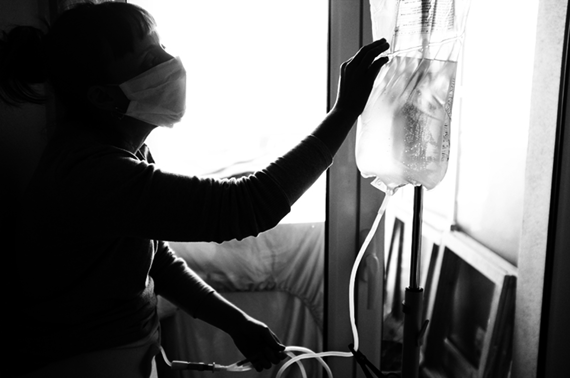
8
The link that binds the senses to the past and establishes the thrust of continuing is suddenly fraying.
A splitting headache, an uncontrollable tremor, a cramp, sudden loss of balance, a growing tentativeness takes hold. The linkages themselves are vibrating on their own. White-tinged rainbows swirl around the circle at the edge of sight.
He feels his atoms flying apart in all directions. The center is uncertain. The inner network, the outer skin, the conceptual web of agreed-on realities, all are stretched. He feels a vast indifferent emptiness encompassing him. Inexplicable dream states emerge from nowhere. Visions come to life and linger like dreams on waking. Everything that seemed solid is wavering and porous.
9
She had a chest cold for ten days. Sickness swept her onto a flow she could not get out of. She was being drawn away from the world. She was shifting into a separate time stream. She was immersed in a body-stream now going its own way. She was carried onto a subterranean river, drawn through caverns and passages and could not stop.
She thought she might be close to death. She felt that she was someone who existed only in her memory. She was aware how thin the membrane was that bound her to life. The membrane was stretching. In the moments when the fear abates, it is, in a way, interesting.
10
The Swedish poet Artur Lundkvist lived through World War II, which marked him deeply. At 75, he had a stroke, and lay in a coma for two months. From the time he woke, his recovery was slow, but filled with dreams and imaginings. He wrote an account of what he had experienced.
Stranger within me, stranger at my side. . . .
I live in several eras flowing in different directions . . . how easy to lift the past to the surface and perceive its strange reality. . .
. . .the present falls endlessly backwards and rises again in front of us, is born and dies in the same moment to gather at the river which flows slowly at the same time beyond us and before us.
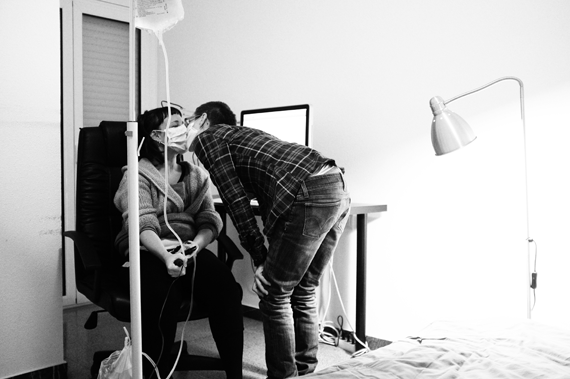
11
Timeless: whatever conventions require or intentions demand, these no longer have any traction on the surface of a time now defined by the body’s pain, the mind’s anguish. The body is being transformed. The agents of change are not part of our desire or understanding. We are being deformed, and we are submerged in the flesh that is burning or cold, flaccid or in spasm. Our awareness is now deeper within this flesh, the movement of fluids and solids. The outer world is relevant only as a support to continuing or ending, only as offering ease or greater pain.
12
He was falling through the network of needs that had kept him in the human world. His body was a vessel of skin and bone floating on the dark, hot water of the Styx. And who was the pilot? It was no longer he. He had pushed off from the bank where others called to him and he, soundlessly, called back to them.
He recoiled from the pain in his chest. His awareness shrank within the body. His mind moved in this inner space and seemed to sense barely perceptible worlds, entering them, becoming them, moving.
Illness, fever, pain determined when he woke and slept. They prompted dreams, which—even when unconscious—he recognized were not quite his own. At times, he floated in a silent space, empty, cool, and motionless.
13
My friend Tom had a stroke. He found himself imprisoned, unable to speak. He knew the words and how to order them. He had forgotten nothing. But his body and all the physical world had become hard, bright, and solid. He was encased in a seamless continuum of things. Words, thoughts, feelings could not penetrate or modify, enter or touch a world suddenly so vivid and impermeable.
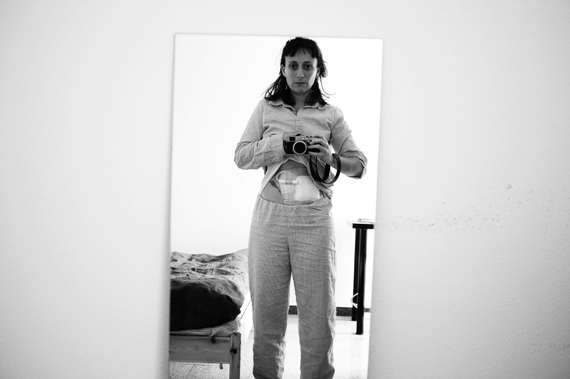
14
A bank of purple clouds
Against the pale blue-gray above the mountains
Darker with feathered borders descending
Perhaps rain is to come,
Perhaps it is falling deep in the mountains.
moment
In its own frame of reference.
Not ours,
Its sky mind
Does not answer our questions
Or speak in our solitude.
Its cloud thought
Does not articulate
Need or time
moment
The lover turns her back.
Her long beautiful spine,
Pale soft skin.
She puts on her robe
And leaves the room.
moment
I dreamed I . . .
15
I am hurtling through dimensions I cannot comprehend. I am burned and frozen, squeezed, distended. Things are pushed into being and pulled out. And there’s no stopping, no stopping of the intensity, the claustrophobia, the pain, and the intermittent brightness of a shimmering vast expanse.
Gap
On and on, forgetting and now remembering that moment when you first came up the escalator in a red dress. Such beauty, such terror, such intensity, such expanses of dissolving boundaries. I am being devoured. I am in a whirlwind. I will not emerge as the one I once knew.
Gap
16
The same dream makes an appearance many times. Late at night I am walking home alone on the shabby part of a main thoroughfare, dimly lit with brownish-yellow sodium streetlights. At first, it is a familiar part of the city where I lived for many years. The boulevard has a slightly upward incline lined with old movie theaters, Chinese and Cuban restaurants, cheap clothing stores.
I feel a sudden urgency to find something to take home to eat. I enter a dark, narrow specialty food shop with a high ceiling. The refrigerator cabinets are lit by bluish fluorescent lights. I am walking along, trying to see what is in the coolers, trying to make a choice. Cheeses, tinfoil containers of lasagna, frozen beef stew, guava paste. Nothing looks appealing enough. Moving deeper into the store, I see racks upon racks of tired, once-trendy clothes on either side. I am curious, but don’t want to take the time to stop.
I am alone. I keep moving. Nothing is bright or fresh or vivid. Nothing looks the way it might once have. There are no other customers, salespeople, no other people walking home.
♦
Section 2 adapted from The Life of Buddha, by A. Ferdinand Herold, trans. Paul C. Blum [1922]:http://www.sacred-texts.com/bud/lob/lob11.htm.
All images from “Connected to Self-Life and Re-life,” a series of self-portraits from the Italian photographer Luna Coppola, who has been chronically ill since 2004.
Thank you for subscribing to Tricycle! As a nonprofit, we depend on readers like you to keep Buddhist teachings and practices widely available.
